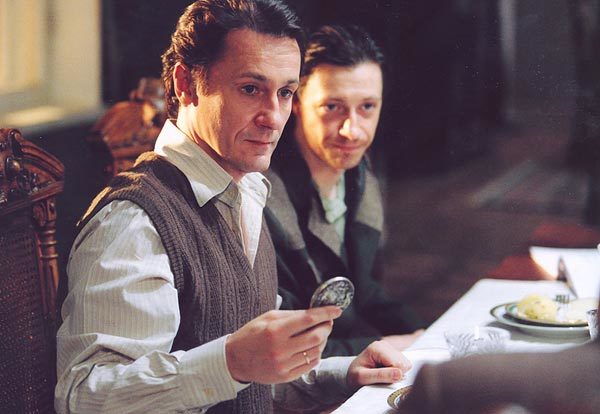British and American director Stanley Kubrick planned to film Boris Pasternak's novel Doctor Zhivago.
This is reported by The Guardian with reference to the historian James Fenwick.
The historian discovered a letter from the filmmaker dated January 8, 1959.
Kubrick talked about his recent successes and raised the issue of acquiring the rights to film adaptation of the work.
“Our last film, Paths of Glory, won Best Film of the Year in Belgium, Brazil and Finland.
Now we would like to acquire the rights to the film adaptation of Doctor Zhivago.
We contacted a New York law firm that represents Italian book publishers.
The negotiations are now at an impasse as they are not yet ready to finalize the deal, ”wrote Stanley Kubrick.
Together with him, the production of the project was to be taken up by producer James B. Harris.
The filmmakers also discussed the possibility of cooperation with Kirk Douglas' company Bryna Productions.
The latter, according to Fenwick, could play the main role - the doctor and poet Yuri Zhivago.
As noted by The Guardian, at first the historian did not believe that Kubrick was really thinking about adapting the novel, since at that time the director was more interested in other genres.
However, Fenwick found evidence among the Kubrick documents in the archives of the London University of the Arts.
Back in the early 1950s, Stanley Kubrick wrote that it was important for a director to make a film based on a large-scale work of classical literature.
According to the filmmaker, the possibility of creating such a project is a certain indicator of success.
"The moment of true triumph for a director is when he gets the opportunity to make a film based on the great literary classics of more than 600 pages, which he does not understand very well and which in any case cannot be adequately filmed due to a complex plot or elusive form or content", Kubrick argued.
James Fenwick suggested that this statement by the filmmaker could serve as a hint at his future plans.
“Perhaps for this reason, Kubrick wanted to transfer to the screen a book like Zhivago ... I think it would be a large-scale epic picture like“ Spartacus ”- an adaptation of a novel written in 1951 by Howard Fast”, - quotes the historian The Guardian.
James Fenwick made his discovery during research conducted on Stanley Kubrick Produces and Shadow Cinema: The Historical and Production Contexts of Unmade Films (Cinema in the Shadows: Historical and Production Contexts of Unmade Films) ).
In them, the scientist will tell in more detail about this previously unknown fact from the creative biography of Stanley Kubrick.
© Still from the film "Doctor Zhivago"
The novel Doctor Zhivago, about the life of the Russian intelligentsia in the early and middle of the 20th century, became the main work of Boris Pasternak.
Work on the book was carried out from 1945 to 1955.
It is believed that the author became the prototype for the protagonist, and Doctor Zhivago is partly his autobiography.
Pasternak tried to get the novel published in magazines in 1956, but he was refused everywhere.
A little later, the book was published in Italy and other European countries.
In 1958, Boris Pasternak was awarded the Nobel Prize in Literature "for significant achievements in contemporary lyric poetry, as well as for the continuation of the traditions of the great Russian epic novel."
In the USSR, this news was received with indignation.
Publications that were derogatory for Pasternak began to appear.
For example, an article in Literaturnaya Gazeta stated that Doctor Zhivago was "an artistically wretched, spiteful work filled with hatred of socialism."
The persecution of the writer began.
In the Union, the book was published only in 1988, 28 years after the death of the author.
Doctor Zhivago has been filmed several times.
One of the most successful film adaptations of the novel is considered to be the Italian-American film by David Lean in 1965.
Omar Sharif and Julie Christie played the main roles in it.
The film was nominated for an Oscar in ten categories and received awards in five of them: Best Adapted Screenplay, Soundtrack, Cinematography, Design and Costume Design.
Another outstanding film adaptation was directed by Alexander Proshkin.
His multi-part tape was released in 2006.
The main role went to Oleg Menshikov.
Chulpan Khamatova, Oleg Yankovsky, Vladimir Ilyin, Andrey Krasko and other artists were also involved in the project.
The tape received four Golden Eagle awards, including the best television series.

